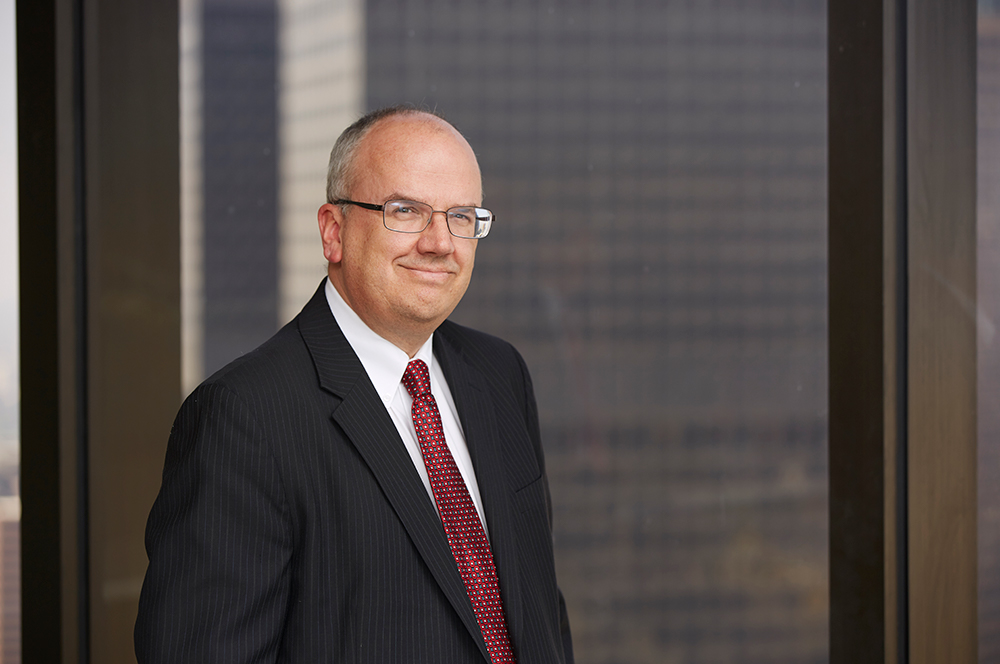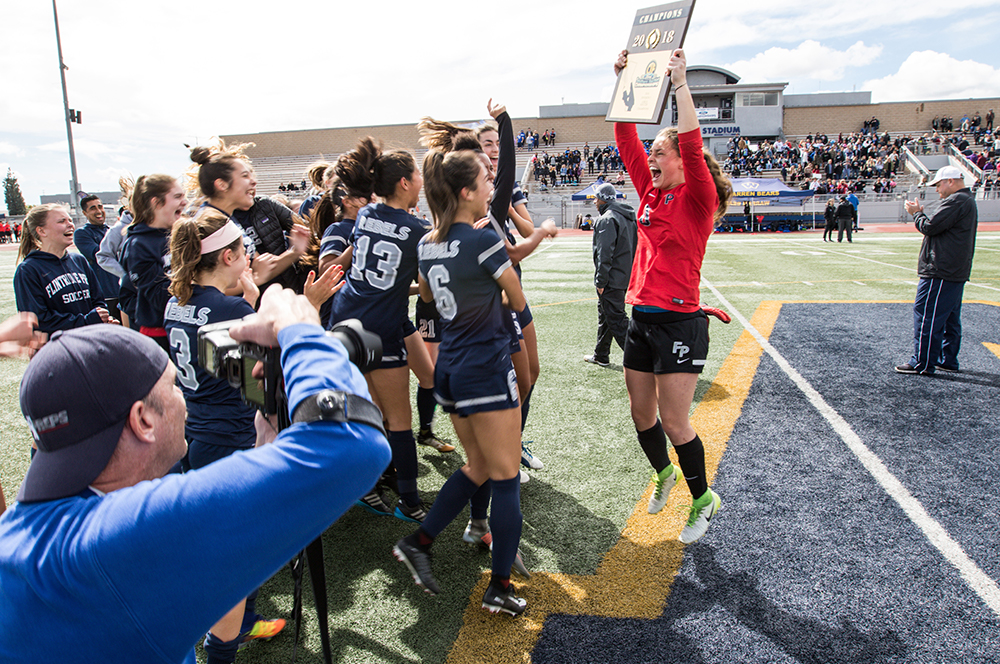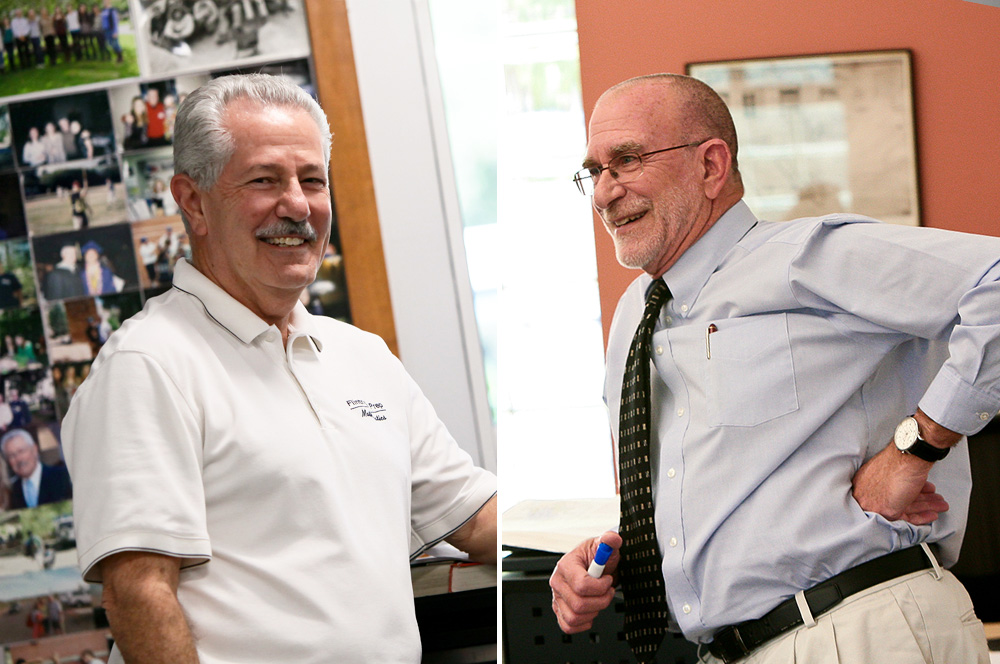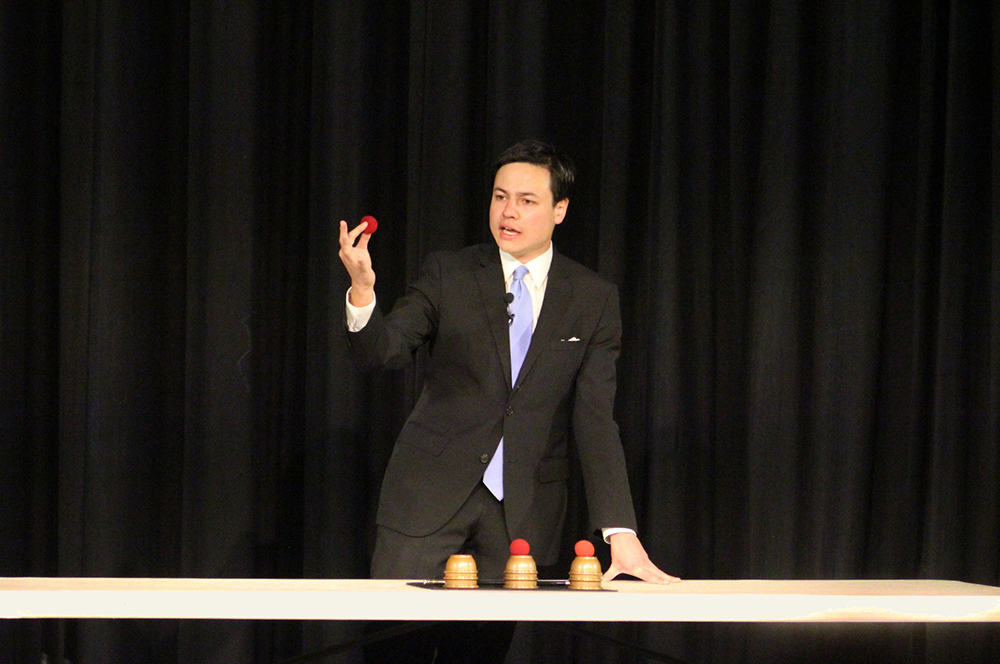Expert Witness: Ken White ’87 Calls the Laws as He Sees Them
by Mel Malmberg
Ken White ’87 was thrilled when he got his first weekend op-ed piece published in the LA Times on January 26, 2017. He immediately wished he could have shown it to the late Kathy Condell Heroon. “She always teased me when I told her about some professional accomplishment in law,” he remembers. “She would say, ‘Aw, that’s a shame, because you’re such a great writer!‘”
For years, writing was White’s creative outlet, a hobby and a way to keep his attorney skills sharp between cases as he worked first as a federal prosecutor and most recently as a white-collar criminal defense lawyer.
Now he has 120,000 Twitter followers. White’s opinion pieces have appeared in The NY Times and the Washington Post, the Daily Journal and Reason magazines and Salon.com. He’s been on CNN, MSNBC and Fox News at Night; he’s a standing guest on KCRW’s Left, Right and Center and has also lent his voice to other NPR stations. He blogs at Fault Lines and Popehat and has a new podcast on the First Amendment titled “Make No Law.”
White deliberately set out to be part of the vital conversation about law for non-lawyers.
“Reading journalism about the law started to bug me,” he explains. “They got so much wrong. So my mission became to make the law, which governs so much of life, less opaque.” He read up on First Amendment law, took on pro bono free speech cases, built relationships. In 2012, he began sending out his pieces to various media outlets; now, he’s surfing the zeitgeist of a nation besieged by questions and bereft of answers. By explaining (and entertaining), White empowers people to understand the limits and expanse of America’s legal terrain. His sometimes-scurrilous podcasts, blogs and opinion pieces take on big subjects like defining defamation and libel and explaining the law around search and seizure. He’s a straight-talker who ranges freely and eloquently on free speech, gun control and why and how clients undercut their own cases. “I call the legal issues as I see them,” White says, and his audiences like (and sometimes loathe) what they hear.
Now his day job as a criminal defense attorney at Brown White and Osborn in Downtown LA meshes with his growing stature as a commentator. “People who hear me or see me call me to work for them. It wasn’t part of the goal, but it’s been a great benefit,” he says.
Besides working to explain law, White uses his platform to illuminate the issues around depression and anxiety, having suffered from these twin, misunderstood diseases his whole life. “I’m a high-functioning person with a job, a family, a career—and I have this, I have been devastated by this, and I have learned from this. So how I can help is to open a public discussion, provide an example, encourage people to talk about it, get help they need.”
A self-confessed nerd, White was an early adopter of technology, so his successful penetration of so many old and new media outlets makes sense (it also doesn’t hurt that he’s funny, erudite and approachable). But he claims he could never have seen this avalanche of speaking and writing coming in high school, where he says he was an “under the radar guy” who enjoyed both Condell’s and Peter Bachmann’s classes.
Winning the Founders Trophy his senior year showed White that his work was seen and valued (he had been a passionate community service volunteer, most notably raising $3,000 for a homeless shelter by encouraging an inter-class fundraising competition). “Prep recognized that there are a lot of ways you can contribute—beyond being the smartest, the most athletic or the most popular.” He appreciated then, and now as a parent of Evan ’19, how Prep values balance, independence and “turning a whole person out into the world. Prep kids know that it’s nobody’s job but theirs to prepare for a test or a meeting, that they can advocate for themselves with a teacher, a professor, a boss.”
Nevertheless, White says, “The 17-year-old me would have been terrified of what I do now, speaking on TV and so forth. But I thought, ‘I can do this.’ You find a passion and decide you can do something, and you can achieve it. Our instant-gratification society sends the wrong message. Athletes understand, valedictorians understand—you have to put in the work. Then, when you’ve achieved what you set out to do, it looks easy.”




